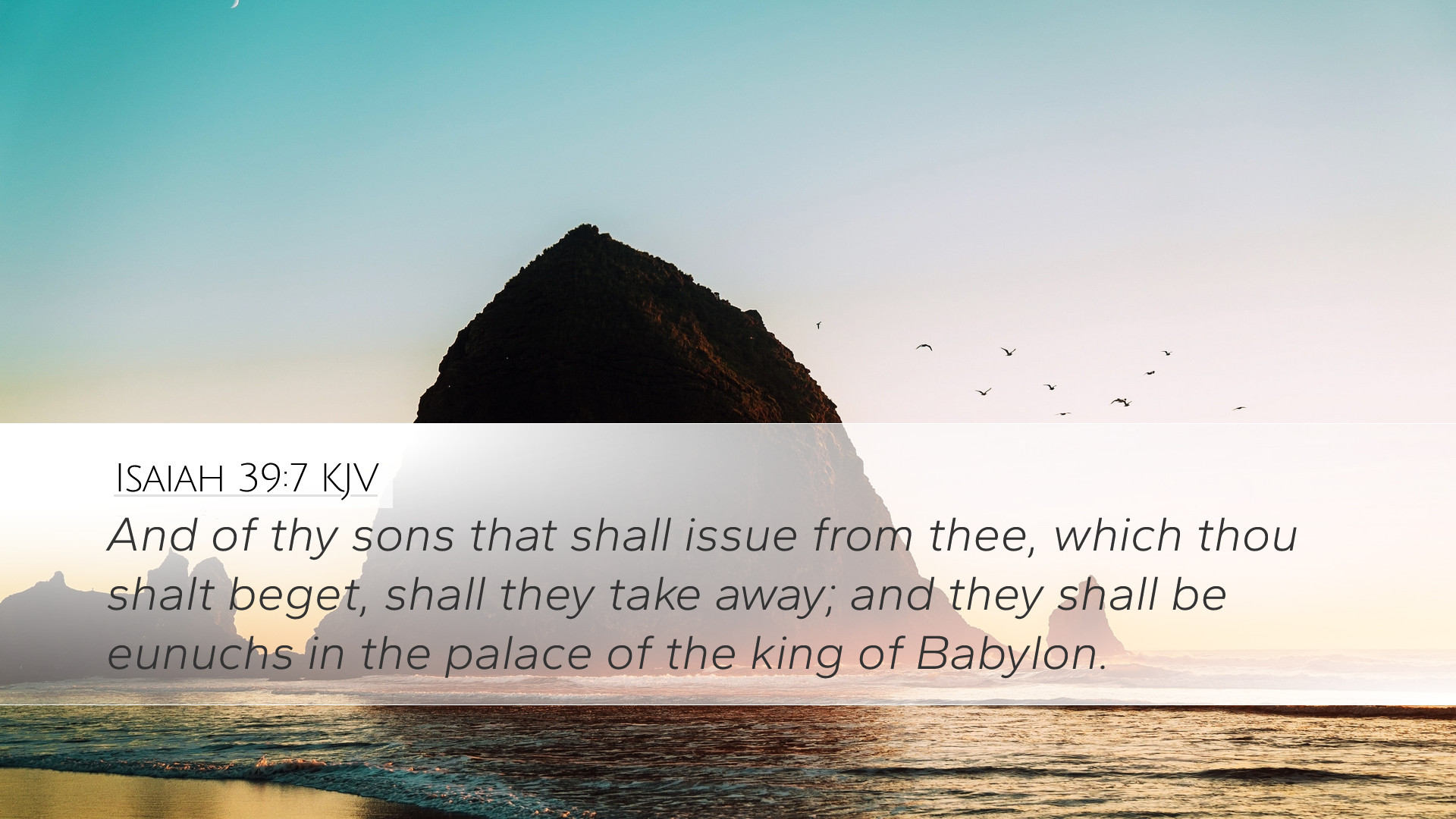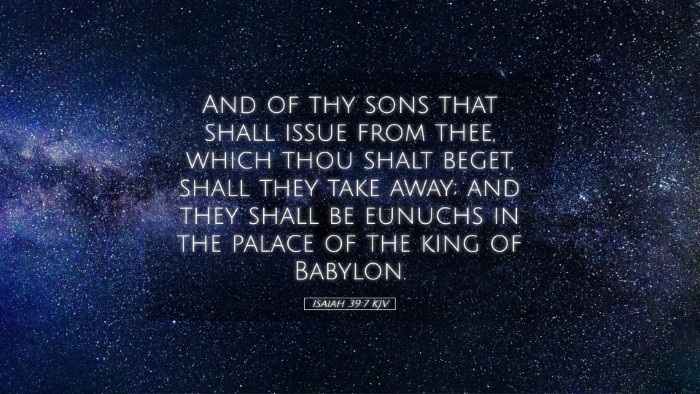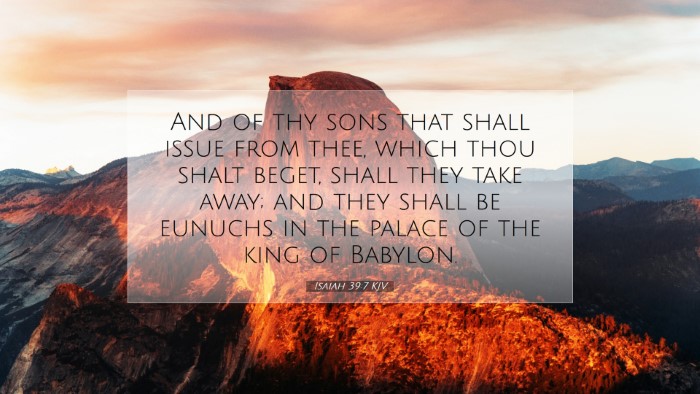Commentary on Isaiah 39:7
Text of Isaiah 39:7 (KJV): "And of thy sons that shall issue from thee, which thou shalt beget, shall they take away; and they shall be eunuchs in the palace of the king of Babylon."
Introduction
This verse is a pivotal moment in the narrative of Isaiah, linking themes of prophecy, judgment, and divine sovereignty. It has significant implications for both the immediate audience and the wider theological narrative of Scripture.
Contextual Overview
In the preceding chapters, Isaiah speaks to King Hezekiah, who has shown off his treasures to the envoys from Babylon. This act of pride leads to a prophetic declaration that Babylon will eventually conquer Jerusalem and carry its inhabitants away into exile. Isaiah 39:7 serves as a specific revelation about the fate of Hezekiah's descendants, foreshadowing the impact of national sin and divine judgment.
Theological Implications
- Divine Judgment: The punishment announced through Isaiah is a clear demonstration of the consequences of disobedience. Matthew Henry notes that the act of showing the treasures to Babylon was not just a political miscalculation but also a spiritual one, revealing a lack of trust in God.
- God's Sovereignty: Albert Barnes emphasizes the sovereignty of God over nations, highlighting that even the greatness of Babylon is under divine control and operates within God’s ultimate plan for Israel and Judah.
- Consequences for Future Generations: Adam Clarke points out that the fate of Hezekiah’s sons signifies the harsh realities that future generations may face due to the decisions made by their predecessors. The reference to them becoming eunuchs illustrates not just a loss of autonomy but a profound alteration in their lineage and legacy.
Interpretative Insights
This verse can be understood on multiple levels: political, personal, and prophetic. The personal ramifications for Hezekiah's family illustrate the profound nature of sin and its ripple effects through history, impacting lives in unforeseen ways.
Political Significance
The political implications of Isaiah's prophecy reveal the shifting allegiances and power dynamics in the ancient Near East. Babylon's rise as a significant power, coupled with the predicted exile of the Israelites, marks a significant transition in biblical history—a movement from national identity to a context of exile where identity is challenged and redefined.
Personal Application
For individuals today, this passage serves as a cautionary tale about the repercussions of pride and the importance of humility before God. Reflecting on Hezekiah's actions prompts a deeper consideration of how personal decisions affect not only one's immediate context but also future generations.
Prophetic Foreshadowing
This verse also foreshadows the broader redemptive narrative within Scripture. While it reveals judgment, it also sets the stage for God's faithfulness and ultimate restoration of Israel—a constant theme throughout the prophetic literature.
Conclusion
Isaiah 39:7 encapsulates the gravity of Hezekiah's mistake and its far-reaching consequences. It emphasizes the need for leaders to seek divine wisdom and highlights the importance of living in obedience to God. For pastoral reflection, this verse offers profound insights into the nature of leadership, the importance of humility, and the way in which our actions can reverberate through time.
Reflection Questions
- What are some modern-day parallels to Hezekiah’s prideful display and its consequences?
- How can church leaders today remain vigilant against similar pitfalls?
- In what ways does this passage encourage a deeper understanding of God's sovereignty in our personal and communal histories?
Bibliography of Commentaries
- Henry, Matthew. Matthew Henry's Commentary.
- Barnes, Albert. Albert Barnes' Notes on the Bible.
- Clarke, Adam. Adam Clarke's Commentary on the Bible.


